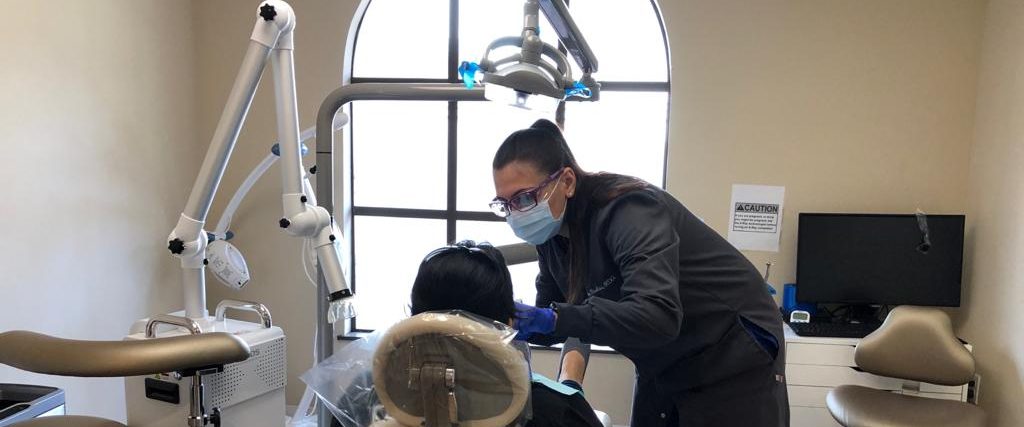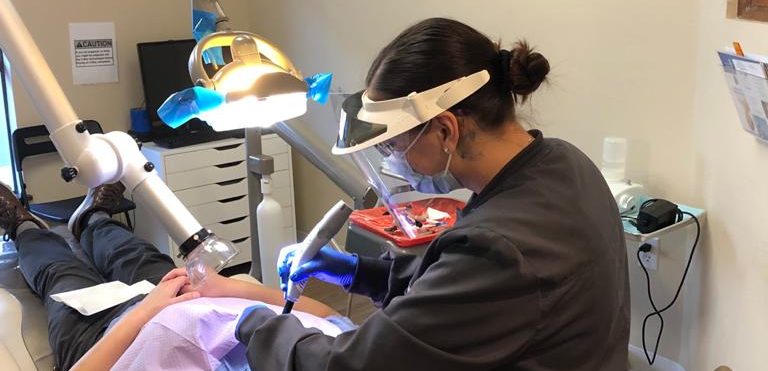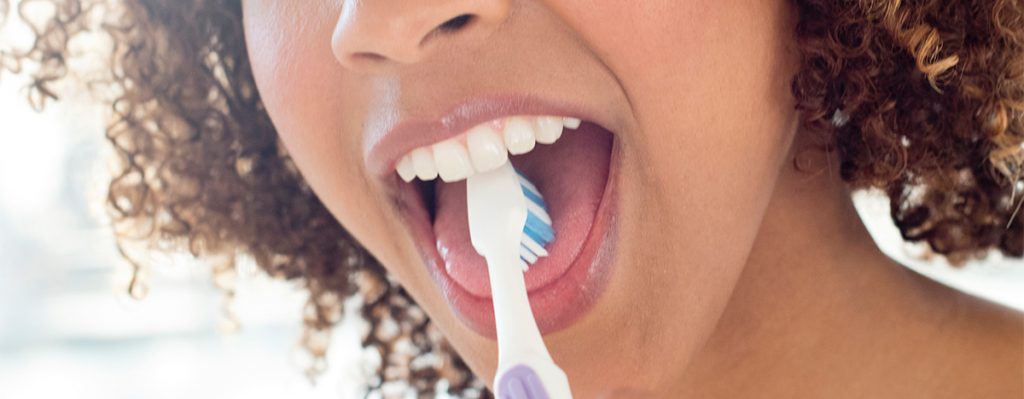Date : 28/08/2020
Most people take their gum health for granted. There are your gums are, doing us and solid and holding our teeth in, and we don’t usually give them a second thought.
That’s a mistake.
Because the truth is, they are holding your teeth in. You could have the healthiest teeth on the planet, but if your gums aren’t in any shape to hold them in place, you’re going to lose them. No matter your age.
But there’s good news:
It doesn’t have to be that way. There are plenty of things you can do to improve your gum health.
Forget the Good — Here’s the Bad and the Ugly
When you ignore your gums, it’s not a pretty outcome. And the impact reaches beyond just your mouth.
It’s vital to keep up with your gum health to maintain a healthy body and immune system. Yes, your immune system.
And we’re not just talking about gum health, although it’s super important. All oral hygiene is essential. When you don’t have great oral hygiene and gum health, you’re making yourself susceptible to periodontal diseaseand other medical conditions.
Pay attention to the warning signs
You might be wondering what your gums are supposed to look like. What is a healthy gum color, anyway?
You want your gums pink. Think bubblegum.
Gum disease may have already started if your gums are red, bleed easily, and are swollen. And any of these can be an indication of gingivitis.
These are warning signs that you need to listen to. If you start addressing these issues and concentrating on your oral health routine, you can reverse these effects fairly easily.
One thing you want to do is eliminate all habits that may develop into a problem for your oral health. And we’ll get more into that in a minute.
But first, let’s talk about some things that can happen when you have poor gum health.
Some Conditions You Can Develop Due to Poor Gum Health
- Cardiovascular disease
- Hypertension
- Type II diabetes
- Alzheimer’s disease and dementia
- Heart attack
- Stroke
- Rheumatoid arthritis and other kinds of inflammation
- Pregnancy complications
That’s quite a list and, let’s face it, nobody wants to be on that list. But you are not powerless in this situation.
Along with brushing your teeth, stick to an oral health routine to improve and maintain gum health.
By eating better, eliminating bad habits like smoking, and having regular cleanings by a dentist, you’ll have good gum health. Here are seven more ways to keep your gums healthy and eliminate the above risk factors.
7 Simple Tricks to Great Gum Health
There are several ways to keep your gum health on point. And if you stick with these suggestions, you will maintain great gum health and are less likely to develop gum disease.
As if those reasons aren’t enough, there are other benefits too.
The advantages of healthy gums include better overall health, less risk of tooth loss, a cleaner mouth and fresher breath, less gum recession, and a reduction in your tooth sensitivity. That’s is especially true when eating sweet things or very cold or hot foods or drinks.
Here’s what you need to do:
Image by collusor via Pixabay
1. Brush 2. Floss and 3. Use mouthwash
The three main ways to have superior gums include brushing, flossing, and using mouthwash.
Simple, right?
Remember, if you are sensitive to any products, make sure to check ingredients on labels and buy those for sensitive teeth and gums. Most people brush, floss, and then use mouthwash, but you don’t have to do these in order. Do them in whatever order you want to.
By brushing your teeth, you are helping protect them from plaque buildup and tooth decay. While flossing cleans in between your teeth and allows you to get the plaque you can’t get with a toothbrush.
You can rinse with mouthwash at the end of your brushing and flossing session to clean away germs and other particles you may have missed.
Image by congerdesign via Pixabay
4. Eat a healthy diet
Besides brushing, flossing and using mouthwash, the food you eat heavily impacts your tooth and gums.
We know junk food is convenient and popular, but your mouth doesn’t care about either of those things. The truth is: Excess junk foods are bad for your body and your gums.
If you want to improve gum health naturally, there’s no better way to do it than to eat whole natural foods. Focus your eating on vegetables, fruits, and grains, and bone up on other foods rich in vitamin C and omegas.
Nature at it’s finest.
Vitamin C, in particular, is a powerful immune system booster and is essential for your gums. It strengthens blood vessels and helps fight infection and reduces inflammation everywhere in the body, especially your teeth and gums.
And that’s not all:
Vitamin C is also for producing collagen, which is a protein to help fight against gum disease and speed up gum health. Oils from fish (omegas) are just as important in supporting tissues and inflammation reduction.
Foods that improve your gums
You’re here because you want healthy gums, and what better way to strengthen your gums naturally than by looking in the produce department?
Consider adding these foods to your diet:
Ginger root is an herbal remedy that promotes gut health and is also great for reducing gum inflammation. There’s that inflammation again, but it’s so important to keep that inflammation in check. Not only in your mouth, but in your body as a whole.
You may have heard that acidic fruits being bad for your teeth, but apples and oranges are great. They’re not only high in vitamin C, but chewing them helps break up the plaque that clings to the gums and teeth line.
Pro tip: Just make sure you rinse your mouth afterward to eliminate the high acid levels in your mouth. That way, you get the bene’s without the cost.
Head over to the refrigerated section
It’s true what you’ve heard: Too much calcium can be bad.
But, and this is a big but, a body lacking in calcium is bad for oral hygiene. It’s all about balance.
Here’s the whole story:
Calcium can reduce acid levels in the mouth and dairy is a great source of protein. Plus, calcium is essential for building strong teeth and maintaining them. Not everyone drinks milk or likes dairy products, so take a supplement if you prefer.
And back to produce
Even if you’re not a fan of salads, you’ll want to make an exception for dark leafy greens. That’s because they’re practically healthy gum vitamins! They’re high in vitamins and minerals and can contribute to your gum health.
Foods like celery (a.k.a. nature’s tooth floss), spinach, kale, and cabbage all have these benefits. And while most people don’t like raw onions or raw garlic, they’re powerful bacteria-fighting foods.
As a matter of fact, they’re both anti-microbial and antibacterial. That’s powerful.
An onion a day may just keep the dentist away. If you love onion soup — perfect. You can get your calcium on top with Swiss cheese. And if you don’t like eating garlic, some supplements will give you what you need.
Filling your cart
Since eating well and having healthy gums is crucial, fill your cart smart. Evaluate your diet and make sure you are getting enough of gum beneficial foods.
You will improve your gum health and your overall health to boot.
Image CC4 by Basile Morin via flickr
5. Don’t smoke or chew tobacco
Not only is smoking detrimental to your lungs and overall health: the issue first begins in your mouth. Smoking can cause inflammation, mouth infections, and gum disease.
And that’s not all:
If you smoke, you’re more likely to have root canals, extractions, overall gum damage, and poor health. Chewing tobacco also contributes to poor gum health.
And in the United States, smoking is not only one of the main causes of severe gum disease, but it’s also the cause of poor gum health overall. That’s because gum disease begins with bacteria or germs that get under your gums. Layers of plaque and tartar develop, which cause early gum inflammation.
Smoking and tobacco chewing weaken your body’s immune system, which makes it harder to fight off infections, especially when they begin in the mouth. They also make it very difficult for your body to heal.
Smoking and chewing tobacco can cause:
- Swollen, red or bleeding gums
- Painful chewing
- Sensitive or loose teeth
- Teeth and gums separation
6. See a dentist every six months
Dental visits are very important at least twice a year for routine cleaning and to monitor teeth and gum health.
Typically, once a year x-rays are also recommended to make sure teeth and bones are healthy, and there is no cavity production.
During your visit, your dentist will perform a thorough examination of your teeth, gums, and your entire mouth. looking for signs of any issues or abnormalities and disease. So, by going every six months, your dentist can catch gum disease early and help reverse any issues that develop.
7. Get treatment if you have signs of gum bleeding or inflammation
Sometimes when you notice a problem with your health, your first instinct is to ignore it and hope it will go away.
Don’t do that. Instead, do this:
If you have pain or signs of inflammation in the gum lining, reevaluate the way your brushing techniques work, and the way you floss. Sometimes these are simple fixes and other times they may be an indication of gum inflammation or gingivitis.
Either way, it’s crucial to discuss these gum health issues with your dental provider in case you have periodontal disease. Plus, you have to monitor your oral health at home. If something seems out of the norm, don’t ignore it, have it checked.
You Can Have Healthy Gums (Again)
Always remember that oral health includes more than just your teeth. Pink gum tissue is essential to maintaining great gum health and overall body and immune health.
Remember to floss, brush, and use mouthwash every single day. And if you’re sensitive, get sensitive oral products. They’re everywhere nowadays!
Give your gums the vitamins and minerals they need to stay healthy by maintaining a healthy and balanced diet. And if some of the foods above are difficult for you to eat, well, they’ve got a supplement for that.
Most importantly:
Any time you feel as though you have inflammation in your gums, see a dentist. They are there to help you and ensure your teeth stay right where they should — in your healthy gums. So, give them a visit every six months. They’ll miss you is you don’t.
Don’t forget: Your gum health creates a domino effect on your overall health, and letting it go can cost you more than just your teeth.




